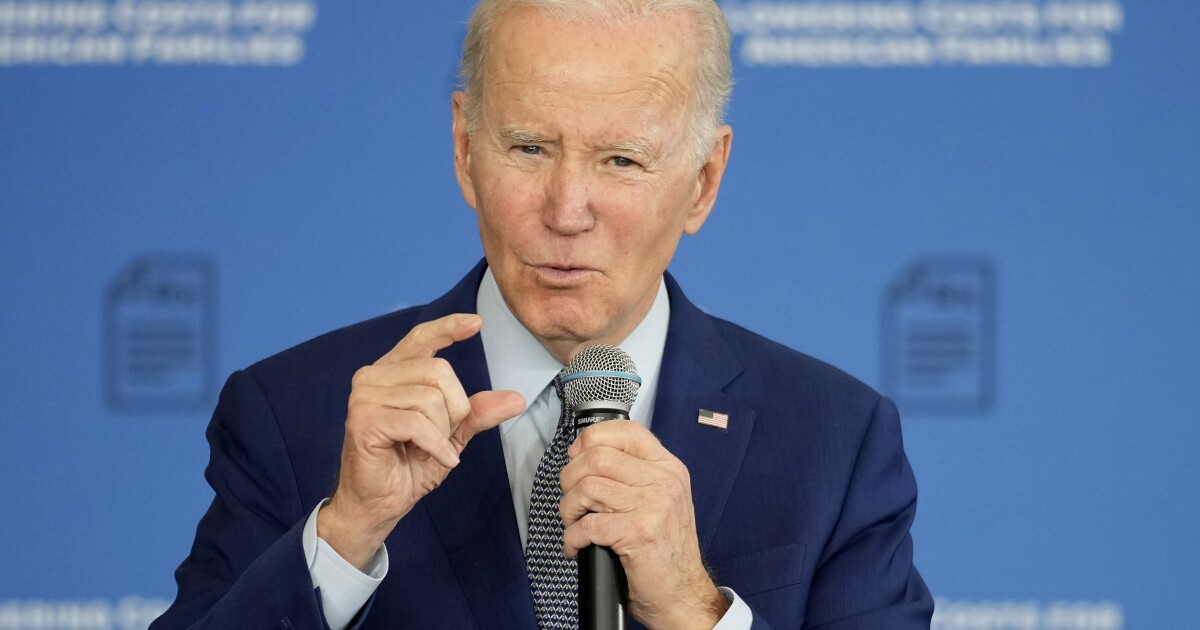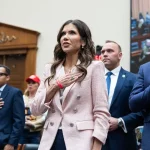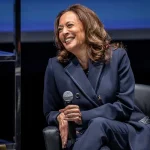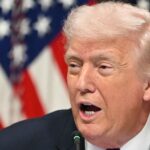

President Joe Biden is under increasing pressure to respond to the national security threat posed by the Chinese-owned social media app TikTok.
But with reports the administration interagency committee that has been contending with TikTok for the past two years has demanded its Chinese parent company, ByteDance, divest or be banned from the United States, critics are asking what took so long.
BIDEN TRIES REBRANDING GOP AS THE REAL POLICE DEFUNDERS IN BUDGET SHOWDOWN
It is “deeply discouraging” that some Democrats have been delayed in their reaction to TikTok, which only further undermines national security, according to House Foreign Affairs Chairman Michael McCaul (R-TX).
“Make no mistake — TikTok is a security threat,” McCaul told the Washington Examiner. “It allows the [Chinese Communist Party] to manipulate and monitor its users while it gobbles up Americans’ data to be used for their malign activities.”
“Anyone with TikTok downloaded on their device has given the CCP a backdoor to all their personal information,” he said. “It’s a spy balloon into … their phone.”
Reps. Mike Gallagher (R-WI) and Rep. Raja Krishnamoorthi (D-IL), the top Republican and Democrat on the House select CCP committee, are more optimistic, describing reports regarding the Committee on Foreign Investment in the United States, which is Treasury-led but comprised of nine Cabinet-level officials, as “encouraging.”
“While the details are important — including complete control over TikTok’s crucial algorithm and complete separation of TikTok from all CCP-controlled investors — these reports confirm what we have long maintained: TikTok, under its current ownership and control structure, is an unmitigable threat to our national security and needs to be dealt with as such,” they wrote in a joint statement. “We urge the administration to act accordingly, and for Congress to codify this decision in legislation, for not just TikTok, but all the TikToks to come.”
Tom Romanoff, director of the Bipartisan Policy Center’s Technology Project, is skeptical with respect to the practicality of a ban since “thousands of apps feed data to the platform,” so the administration would have to prohibit code integration as it tries to uphold freedom of speech.
“No agency or agencies want to be labeled as restricting free speech in this environment,” he said. “With Congress, states, and the federal government pressing on multiple fronts to ban the app and the president saying he supports the RESTRICT Act, they were left with few choices.”
Last week, the White House publicly endorsed the Restricting the Emergence of Security Threats that Risk Information and Communications Technology, or RESTRICT, Act, which, national security adviser Jake Sullivan said, would “strengthen our ability to address discrete risks posed by individual transactions and systemic risks posed by certain classes of transactions involving countries of concern in sensitive technology sectors.”
“Senators have been pressing for a decision for a month now. Their bills indicate an urgency to act regardless of a CFIUS decision,” Romanoff added. “I expect Congress to continue pushing for a legislative solution to the issue.”
Lawmakers’ involvement underscores complaints the administration’s policymaking process takes too long, but it also provides political cover for a controversial position, particularly among Generation Z, which is already an unpredictable voting bloc.
A TikTok ban would create problems for Biden based on the app’s omnipotence, according to Brookings Institution Center for Technology Innovation senior fellow Darrell West.
“Those individuals will wonder why an app they love is being banned,” the TechTank co-editor-in-chief said. “Some Democrats were planning on using TikTok in the upcoming campaign because of its appeal among young people.”
A ban would invite retaliation from China against a U.S. counterpart as well, he went on.
Quinnipiac University published a poll this week that found almost half of the survey’s respondents support a national ban on “foreign technology,” including TikTok, while 42% oppose one. Republicans and independents tended to back a prohibition, while Democrats did not. Respondents between the ages of 18 and 34 years were most likely to be against it at a rate of almost 2 to 1.
Press secretary Karine Jean-Pierre dismissed speculation Sullivan’s RESTRICT Act statement demonstrated the White House’s impatience with CFIUS’s progress or was part of a negotiation strategy as TikTok spends millions on lobbyists and billions on U.S.-based infrastructure in an attempt to please the administration.
“We’ve always said protecting Americans is — especially as it relates to national security — is a priority for this president,” she said last week. “That’s what you’re seeing. You know, CFIUS is doing its review. There’s bipartisanship … in Congress. And I think that’s an important way to move forward.”
A day earlier, Jean-Pierre was needled on the politics after Commerce Secretary Gina Raimondo said Biden would “literally lose every voter under 35″ if he banned TikTok.
“This is not about a political concern,” the press secretary replied. “This is about making sure that we do the right thing for the American people.”
Jean-Pierre, too, has had to defend the administration’s delay in banning TikTok from government phones after the White House collaborated with platform stars at 1600 Pennsylvania Ave.
“The White House, clearly … does not use TikTok,” she said. “But one thing that we do believe in is meeting the American people where they are. And the reality is some, many of them, millions of them … are on this app.”
CLICK HERE TO READ MORE FROM THE WASHINGTON EXAMINER
Biden indirectly addressed TikTok during his State of the Union address this year, calling for laws to stop social media companies from collecting data on children and targeting children with advertising, in addition to supplementing an executive order signed last year curtailing the data they can gather on users more generally.
Jean-Pierre’s No. 2, Olivia Dalton, has similarly emphasized how the administration is “taking every step we can within the executive branch authority, including enacting the first-ever presidential directive defining additional national security factors for CFIUS to consider.”







